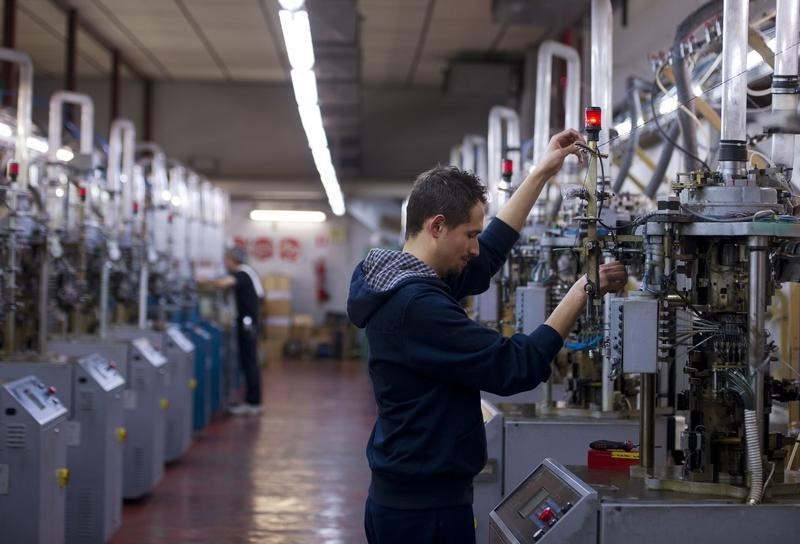By Jason Lange
WASHINGTON (Reuters) - New orders for key U.S.-made capital goods increased more than expected in July and growth in shipments held firm, signaling that business investment started the third quarter on a strong note.
The Commerce Department said on Friday orders for non-defense capital goods excluding aircraft, a closely watched proxy for business spending plans, rose 1.4 percent last month after an upwardly revised 0.9 percent increase in June.
"That provides further reason to think that overall GDP has continued to expand at a healthy ... pace," said Andrew Hunter, an economist at Capital Economics.
Business spending on equipment is being supported by the Trump administration's $1.5 trillion income tax cut package, which came into effect in January.
But there are worries that trade tensions between the United States and its major trade partners, including China, Canada, Mexico and the European Union, could offset the fiscal stimulus.
Economists polled by Reuters had forecast the so-called core capital goods orders rising 0.4 percent in July after a previously reported 0.2 percent gain in June. Core capital goods orders increased 7.2 percent on a year-on-year basis.
Shipments of core capital goods rose 0.9 percent last month after an upwardly revised 0.9 percent gain in June.
Core capital goods shipments are used to calculate equipment spending in the government's gross domestic product measurement, so the higher estimate for shipments in June could contribute to an upward revision of economic growth in the second quarter.
Yields on U.S. government debt rose modestly after the data, with investors awaiting a speech by Federal Reserve Chairman Jerome Powell. U.S. stocks were trading higher while the dollar (DXY) was down against a basket of currencies.
Business investment drove about a quarter of economic growth in the second quarter. The economy grew at its fastest pace in the April-June period as consumers boosted spending and farmers rushed shipments of soybeans to China before retaliatory trade tariffs took effect in early July.
The United States has slapped duties on $50 billion worth of Chinese goods so far, eliciting the retaliation from Beijing.
Overall orders for durable goods, items ranging from toasters to aircraft that are meant to last three years or more, fell 1.7 percent in July as volatile demand for civilian aircraft fell.
